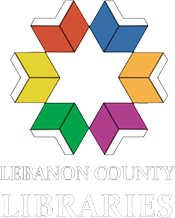Are you just beginning your genealogy research? Are you wondering where to start? Begin by documenting your generation and then work backwards to your parents, grandparents, great-grandparents, and so on. Remember to cite the sources of your information and use as many primary sources as possible. For example, birth and/or baptismal records are considered primary sources for information such as birth dates and places (however, death certificates are not considered primary sources for birth dates and places) while death certificates and obituaries may be considered primary sources for information such as death dates, places, and burials. Other sources of information include the federal census, military records (i.e. draft registrations, enlistments, etc.), church records, naturalization records, and passenger lists. And don’t forget to talk to your parents and grandparents about their experiences when they were young and their memories of their own parents and grandparents. This information can be documented via taped interview or written record.
Try these free resources to start (or continue) your research; while most of these databases are searchable, some are not indexed and must be browsed to find specific records. The library also has a subscription to Ancestry Library Edition, giving the user access to millions of American and international records and databases. Ancestry can be accessed in library only from any of the library’s public access computers.
These local organizations house artifacts, records, documentation of historical and genealogical significance. Their staff may offer additional guidance for your research. Organizations vary by what is made available on their websites digitally.


